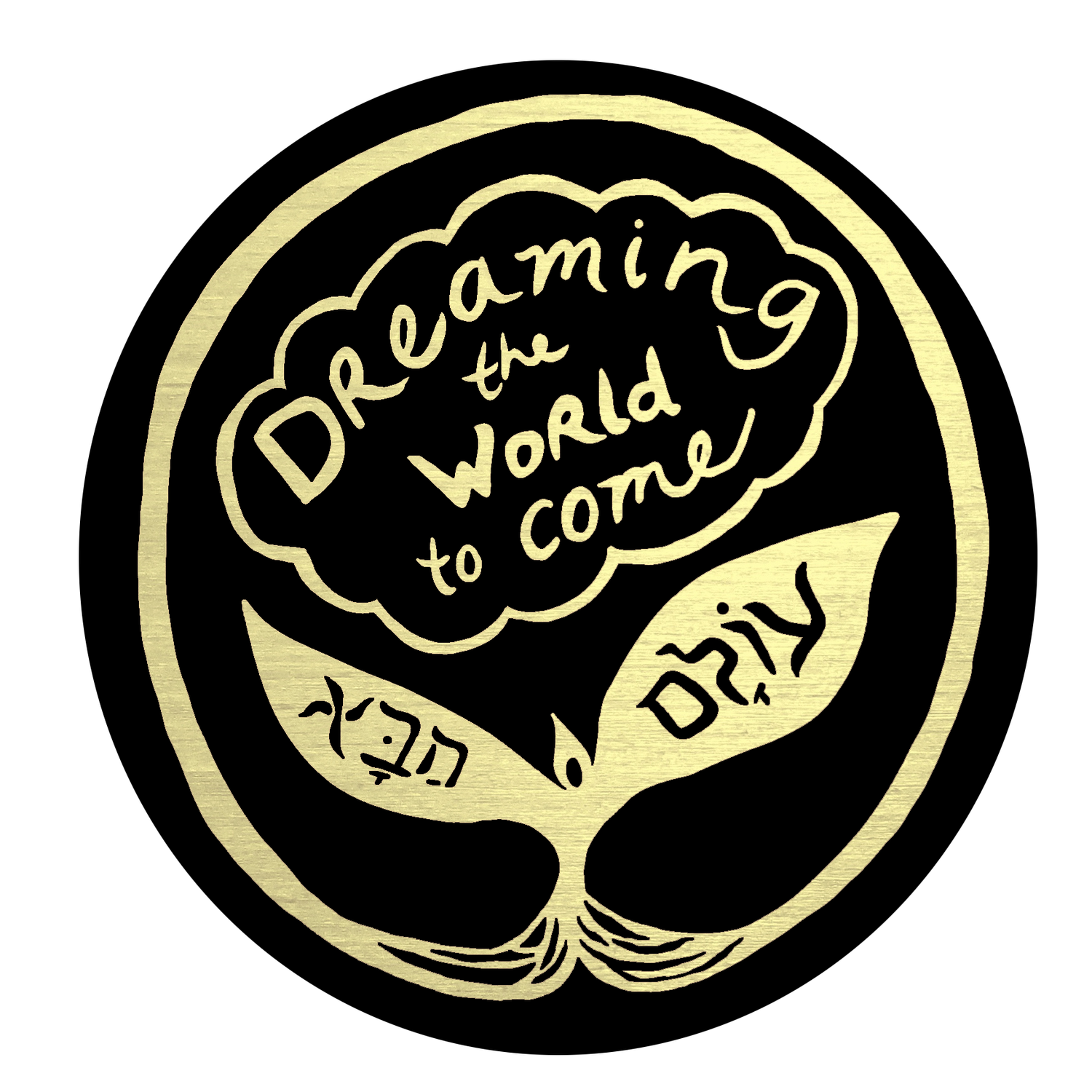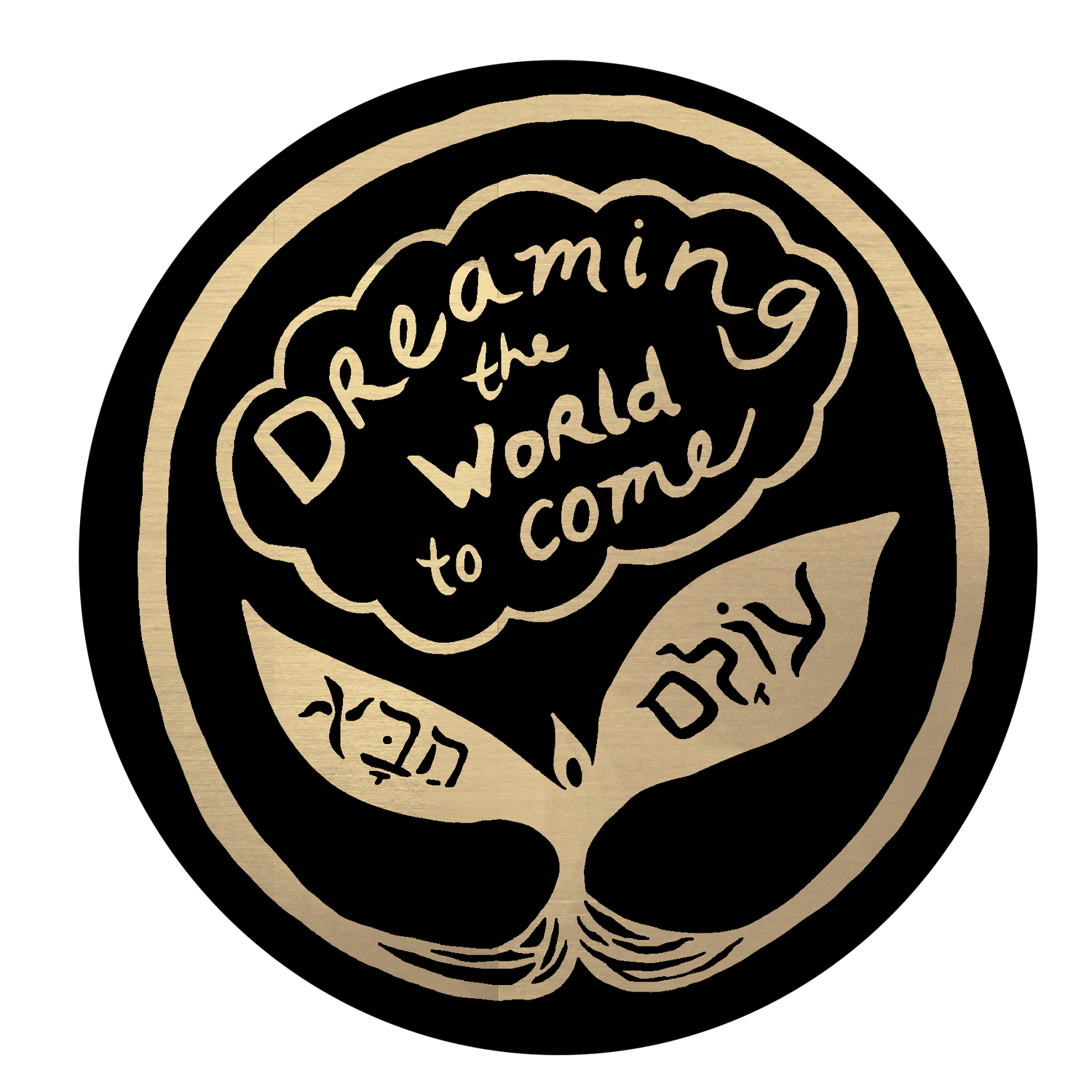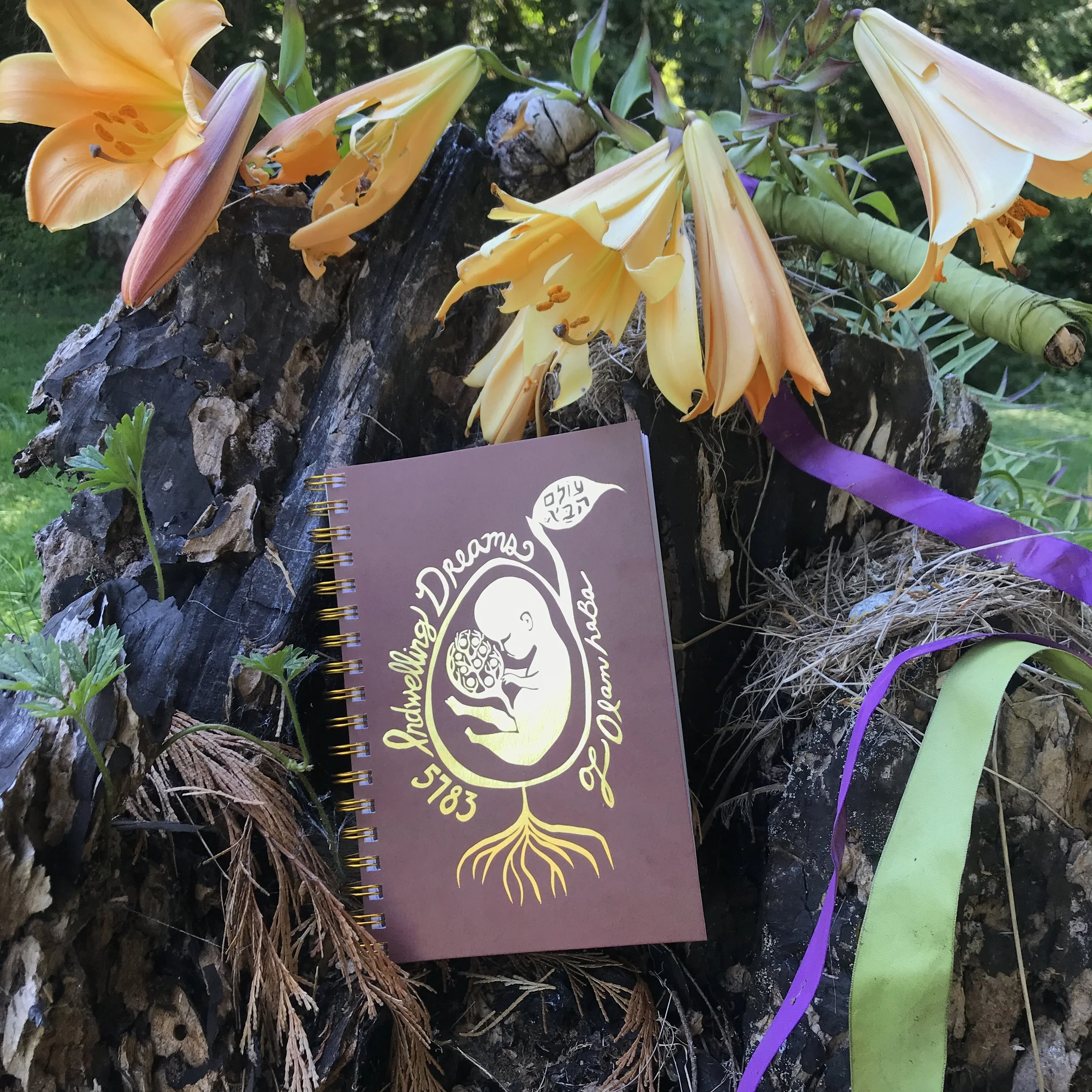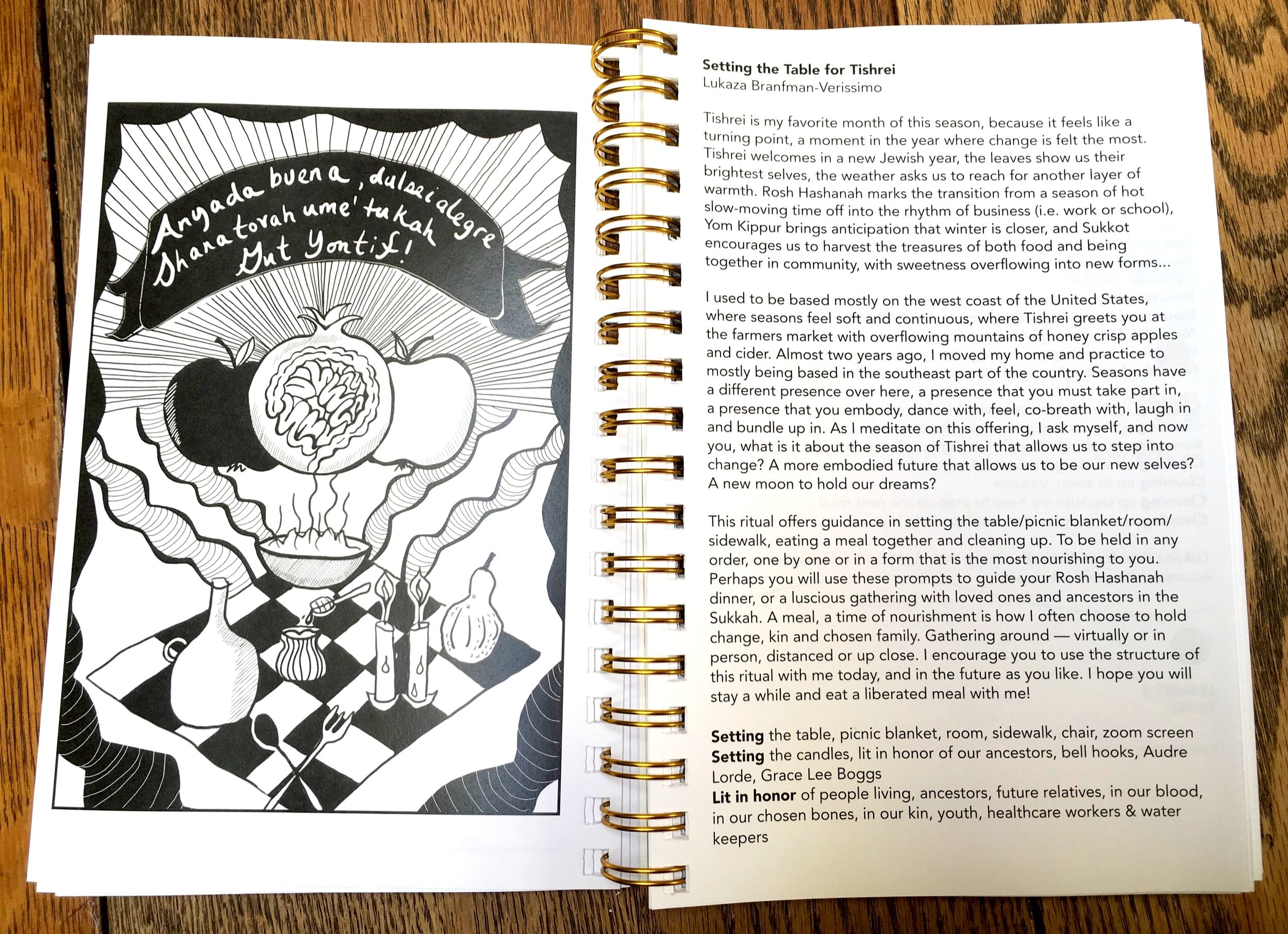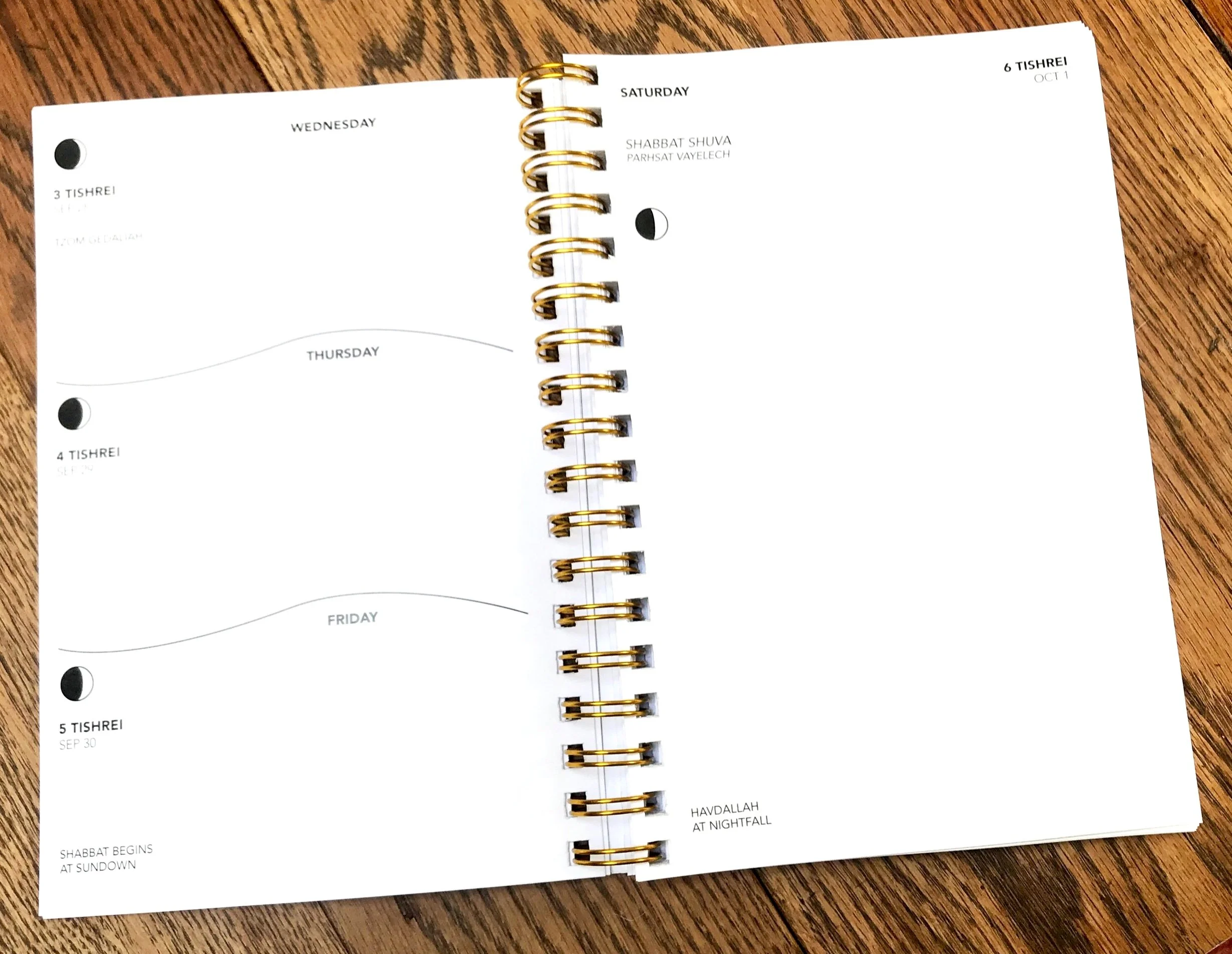Indwelling Dreams of Olam haBa includes:
• Teachings & rituals from 12 collaborators.
• Collaborative illustrations by Rebekah & Nomy.
Jewish holidays & important dates
•Weekly cycles of Shabbat.
•Monthly cycles of Rosh Chodesh.
• Archetypes, Tarot, astrology, plants, body parts, and Hebrew letter associations for each month.
•Daily moon phases.
6” x 9” | 260 pages | gold coil binding
gold foil on brown matte cover
printed locally at an employee-owned union shop
What’s inside:
From Nomy & Rebekah’s intro:
Indwelling dreams live in our cells and our collective experiences of liberation. We can cultivate moments of knowing our hearts beat in tandem with each other, with tectonic plates and with birds migrating. Each individual experience of release and acceptance, of healing our bodies and spirits, is part of our dwelling in the divine. The communion of individuals working together, doing small acts, saying simple prayers, and sharing visions, will build the World to Come.
We are at a moment when many of us are feeling the tides beginning to turn, but love of power still hovers intimately in our lives. We are coming out of shmita, the year of rest, and are more prepared to integrate rest into our actions. What does this synthesis look like, sound like, feel like in our bodies?
Ritual excerpt from Lukaza Branfman-Verissimo’s offering for Tishrei:
Setting the table, picnic blanket, room, sidewalk, chair, zoom screen
Lit in honor of people living, ancestors, future relatives, in our blood, in our chosen bones, in our kin, youth, healthcare workers & water keepers
Nourished by sweetness
Nourished by a world without policing, surveillance, prisons, jails, detention centers
Nourished by a liberated meal together
Nourished by mutual aid, supporting each other
Nourished by home grown squash, apples, collards, radishes
Cleaning up to save the sweetest bits for next year
Cleaning up by turning our scraps into compost
Sweeping, combing through, turning our meal into something new
Cleaning up because we have to prepare the next meal
Cleaning up to imagine that another world is possible
Excerpt from Yitshaq Ofori-Solomon’s offering for Cheshvan:
For Beta Yisraelim (Ethiopian Jewish community) the month of Cheshvan has been set apart for centuries as a time of rededication to Igziabeher, a name for G-d that translates from Ge’ez to mean “Lord of the Nation/Tribe.”
The holiday of Sigd in Ge’ez means “to prostrate,” and this day of supplication to the Divine occurs 50 days after Yom Kippur on the 29th of Cheshvan. Historically, on this day, the disparate groups that make up the fabric of Beta Yisrael would flock together around our various pilgrimage sites after a trek of fasting to recommit ourselves as a nation to HaShem.
The day itself commemorates when Moses descended from Mt. Sinai with the tablets that held the Commandments dictated by Adonai. The holiday of Sigd, as it has evolved, has come to be a day to hold the range of emotions that are all part of the experience of our survival through the grueling centuries we have spent under the violence of Christian hegemony, the violence we still face to this very day.
In recent years the Liqa Kahanet (the Kohan Gadol or High Priest of Beta Yisrael) has declared the holiday and tradition to be open to all Jews who wish to practice, though I do personally caution those who engage to do so with respect. As someone who very strongly identifies with the longing, fear, desperation, beauty, and solidarity of the Diaspora I find this holiday to be especially potent for those experiencing multiple Diasporas. I especially welcome other Jews from Black or African Diasporas to connect.
Excerpt from Mazal Masoud Etedgi’s offering for Nisan:
In the rising steam over a pot of soup, hairime, or couscous, my Savta Mazal/Masouda gestures as if turning a key. Whenever my Savta felt something was intuitively off in her dish, she would turn this imaginary key as a request prayer (Bakashah) and say, “Leh’hafoch et Ha’Mazal,” to change or turn the luck, asking Hashem (G!d) to intervene and support her cooking. In continuation of her legacy, old keys filled my Ema’s drawers next to tiny books of Tehilim (Book of Psalms). I remember looking at them as a child, and now in my home I have keys on my altars, often in bowls or near a jar of grains. Keys are a potent symbol, and a practical and spiritual tool. They open and turn, offering connection to possibility, abundance, and newness. They remind us to be in conversation with the Universe/Hashem/G!d/s, to assert our choice, agency, and desires, despite not being fully in control of the unfolding of our lives.
